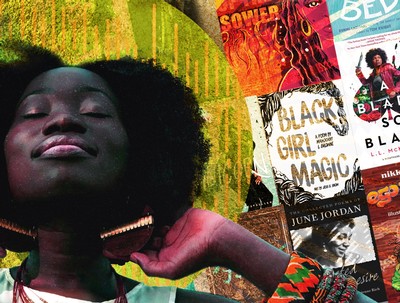Right now, it seems like everyone is reading books about race. The New York Times bestsellers list is currently made up almost entirely of books about race and racism, with the "big three" taking the top spots: How to Be an Antiracist, So You Want to Talk About Race, and White Fragility.
At the Free Library, we’re seeing the same thing. Top titles for adults include books about race, racism, and the Black experience, like Becoming, Me & White Supremacy, The New Jim Crow, and Between the World and Me. The top title, checked out a whopping 891 times in the last 30 days, is Ijeoma Oluo’s So you Want to Talk About Race.
In the wake of the #BlackLivesMatter protests and uprisings, people want to learn more about the roots of racism in the United States, about how to talk about race, and the stories that our textbooks skipped, like the Tulsa race riot.
One way that librarians and other educators have pitched in to help is by making booklists. My brother jokes with me that recommending books is "the librarian Love Language." He’s not wrong. But as we rush to create these lists, and people line up to read the books we have essentially stamped with our approval, important questions and concerns arise. "What Is an Anti-Racist Reading List For?", asks Lauren Michele Jackson. For Vulture, Jackson writes that:
Calls to read more and to read this strike me as particularly funny, or at least comic, in the middle of pandemic when everyone admits that even our customarily wan attention spaces have been decimated. There are snappier places to glean the long-story-short of America, like podcasts, if it took someone this long to care. As a friend pointed out on Twitter, George Zimmerman was acquitted seven years ago. Donald Trump was elected four years ago. Black History Month happens every year. Cops kill all the time. The books are there, they’ve always been there, yet the lists keep coming, bathing us in the pleasure of a recommendation.
I wonder too, as a Black woman—why now? What is different about this moment in time? Why didn’t we cry out as a country with such fire and determination for justice for Tamir Rice? If we don’t find an answer to why now and why not before the murder of George Floyd, then I worry that we’re not really going to make any lasting change.
And then there’s all that Black pain on display. Even though I created a #BlackLivesMatter reading list for our OverDrive platform, I’m still startled every time I see the cover image of Ida B. Wells’ Southern Horrors pop up on my screen. Wells documented the epidemic of lynching so that it would be remembered. Yet, I feel an uneasy sense of dread and a fear that I know is in my DNA every time I see that photograph of hooded klansmen on the cover. Young adult author, L.L. McKinney, warns us listmakers about the "commodification of Black pain." Writing for Tor.com, she says that even though the truth about the horrors of white supremacy must be told, focusing solely on these kinds of stories "sends a clear message to Black authors, Black readers, and Black people as a whole: your stories aren’t worth much if you don’t bleed on the page for us." McKinney emphasizes the importance of writing, reading, and teaching all of our stories:
We know that for every "issue" book, we need at least five more where we can go on adventures, fall in love, solve mysteries, be heroes, do everyday things like everyone else. Black readers need to see themselves in narratives outside of racism, slavery, Jim Crow, police brutality. As do non-Black readers. In order to create a safe world for Black people, books that don’t focus on "issues" need to be given just as much space. They provide an opportunity for Black readers to have a moment for themselves, to take a breath, readjust, and simply exist, and for non-Black readers to see us as fully human.
I’ve tried to take all of this into account as I created a #BlackLivesMatter reading list of ebooks and audiobooks. It’s got popular anti-racism titles and books on police brutality, but it also includes poetry, memoirs, and titles for all ages that tell stories of Black joy, freedom, and the blessed banality of the uneventful every day. And yes, thanks to McKinney, it even has a little Black Girl Magic.
Join the conversation! Have you read any of the books or watched any of the films in our Black Lives Matter Explore Topic? Let us know what you’ve learned in the comments.
Have a question for Free Library staff? Please submit it to our Ask a Librarian page and receive a response within two business days.



